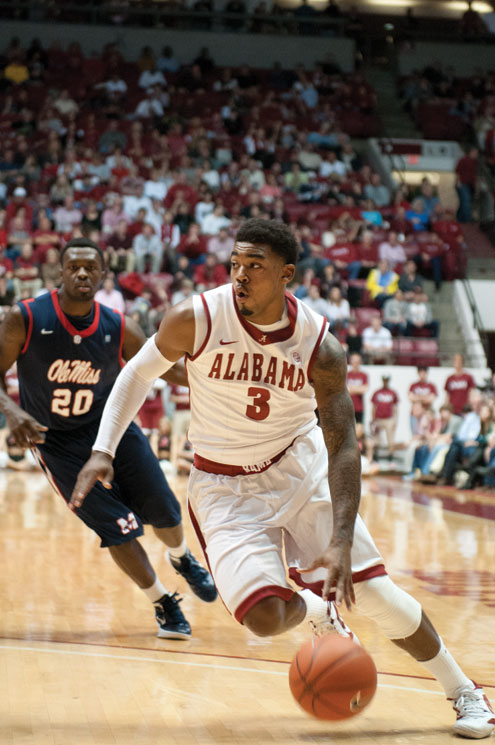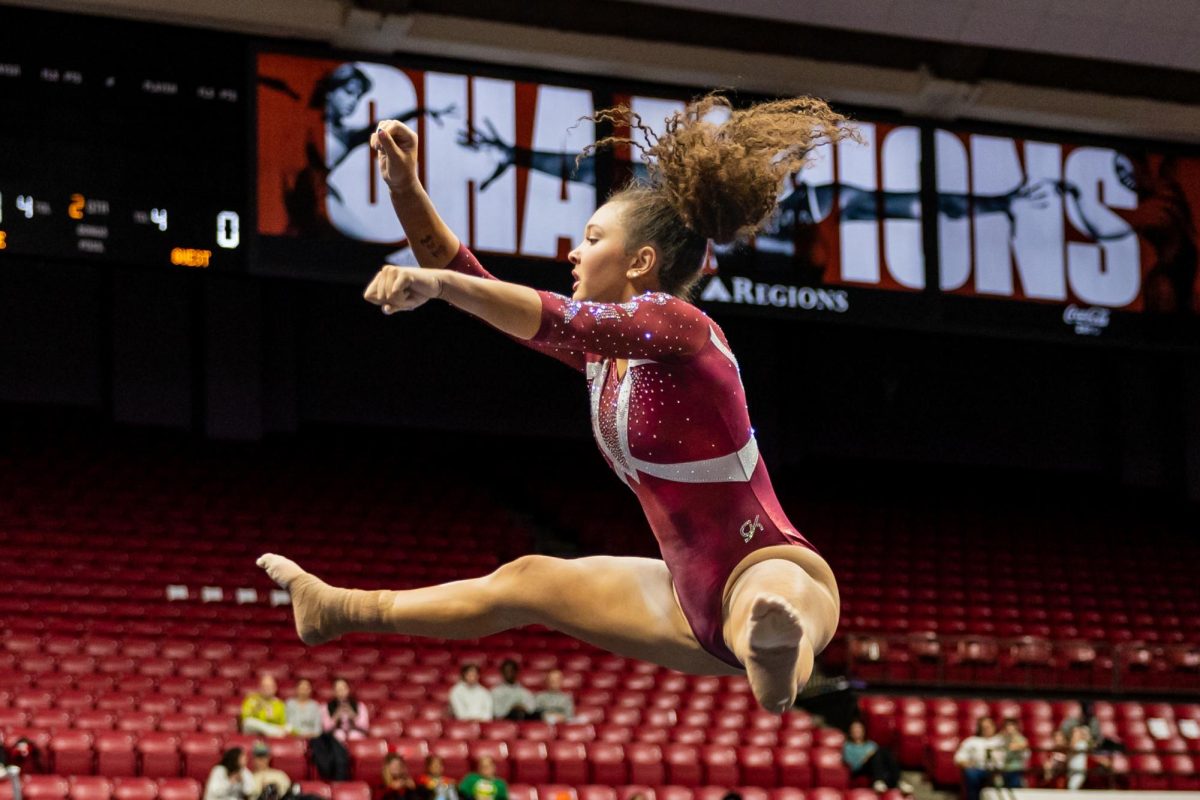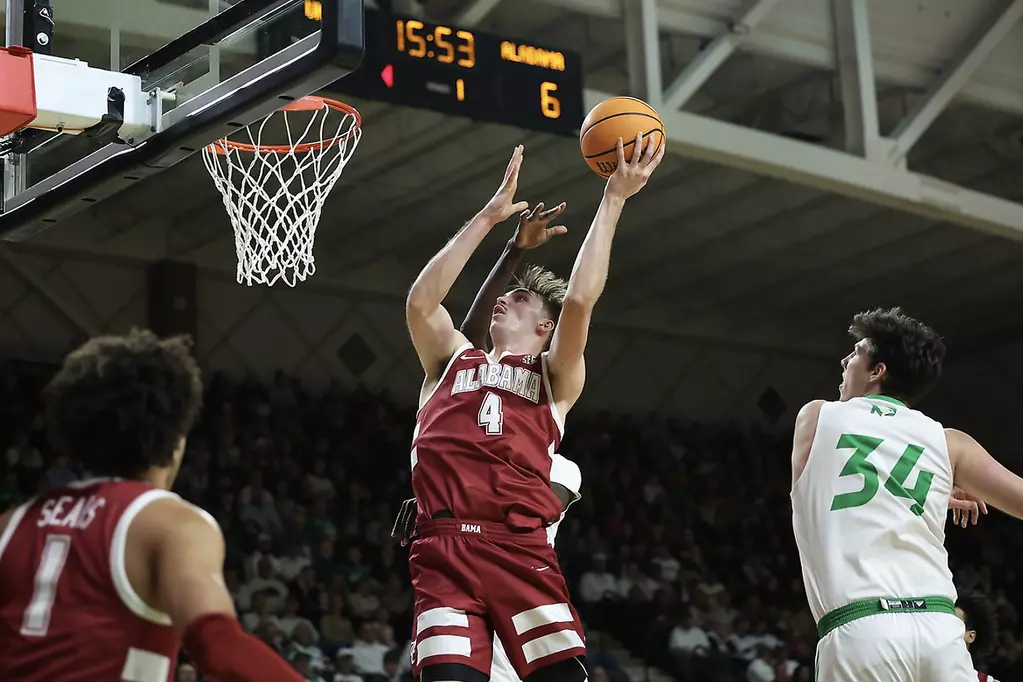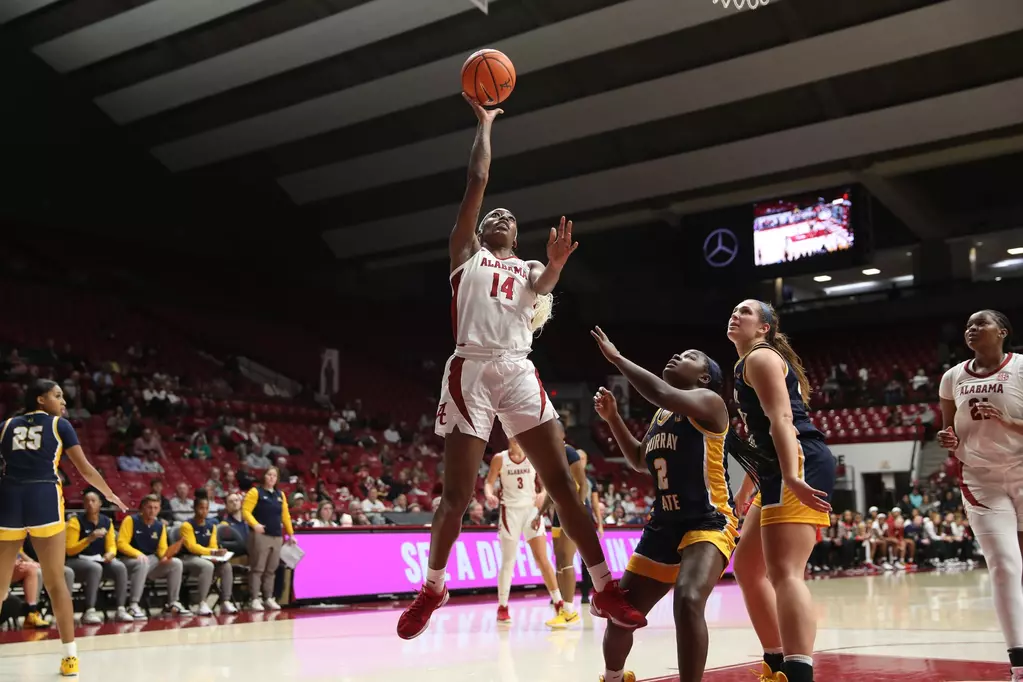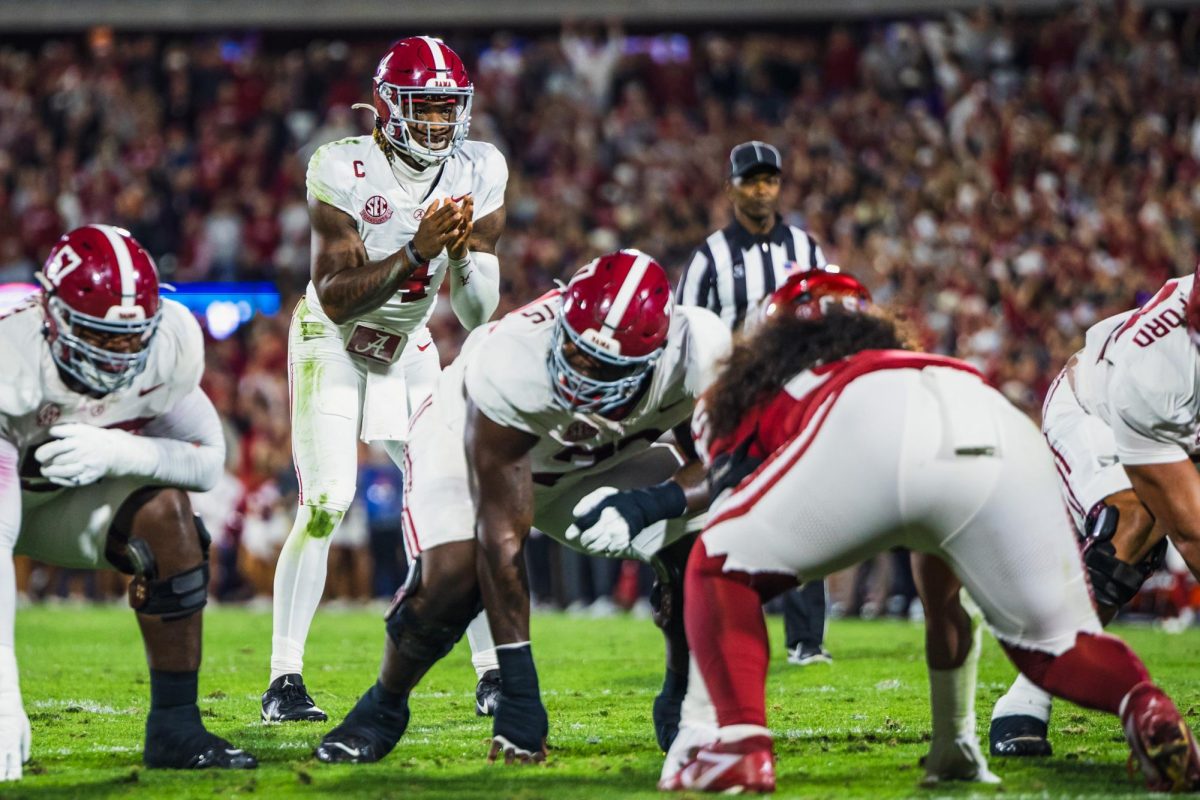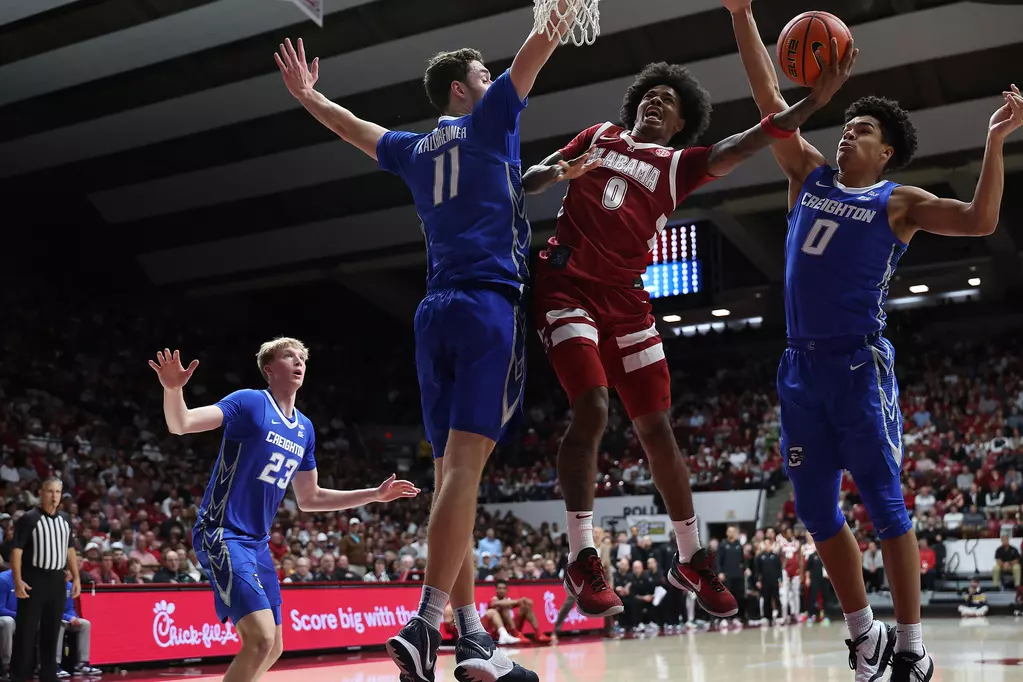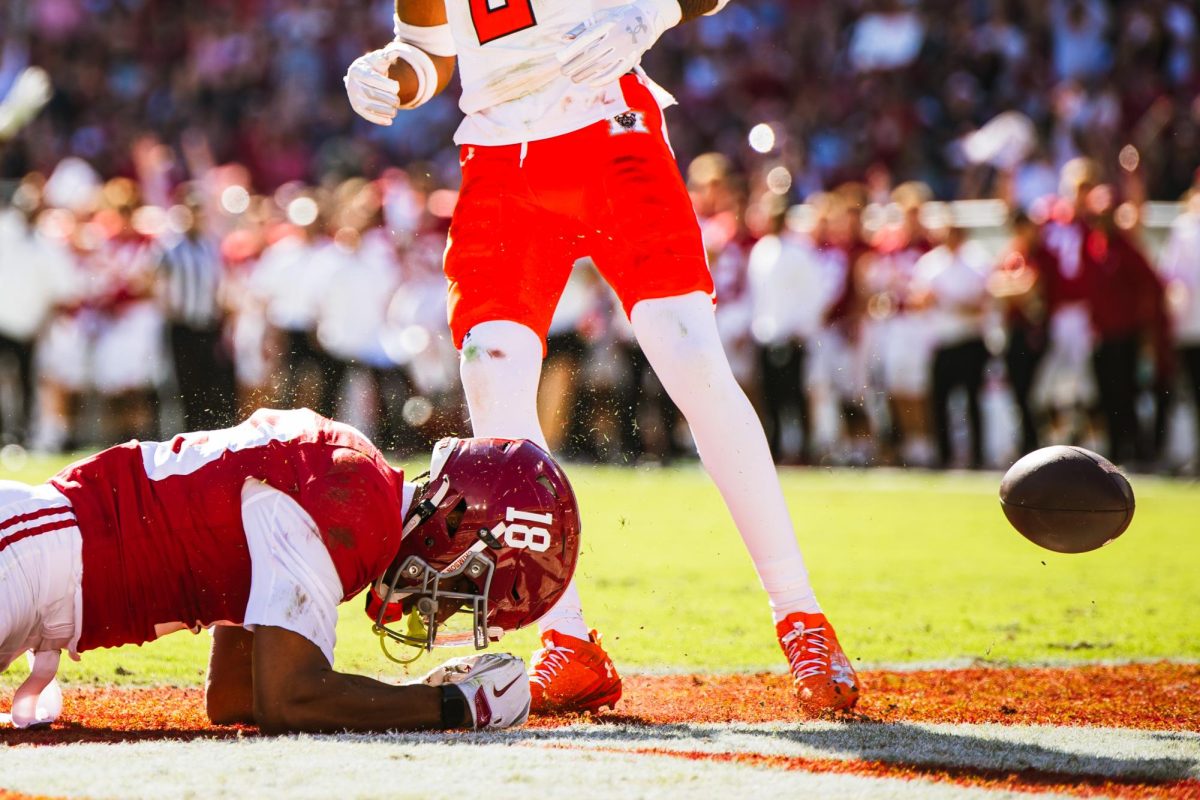 The 2011-2012 Alabama men’s basketball season was an emotional rollercoaster that started with high expectations and ended with a first round loss in the NCAA tournament to Creighton.
The 2011-2012 Alabama men’s basketball season was an emotional rollercoaster that started with high expectations and ended with a first round loss in the NCAA tournament to Creighton.
Still, Athletic Director Mal Moore said he was proud of the performance of the team this season, given the challenges it faced from start to finish.
“Getting to the NCAA tournament with such a young team on the floor was an excellent accomplishment, and I am excited about the future of the program,” Moore said.
Going into the season, head coach Anthony Grant had his core nucleus of veterans returning and a highly touted recruiting class to add firepower. Grant’s by-the-book mentality seemed to fit perfectly with the direction the program was heading. But the Crimson Tide’s season was everything but by the book.
The Tide opened the season with an 8-0 record and seemed deserving of its preseason top-25 ranking, but things all changed with a visit from the Georgetown Hoyas. The Hoyas, unranked at the time, came in with a chip on its shoulder and was looking to prove it belonged in the conversation with the nation’s elite teams. The game plan was simple: play zone defense.
For everything Alabama had in defensive intensity and effort, they lacked in offensive flow and perimeter shooting. The Tide shot 3-of-16 from behind the arc and lost 57-55 on a buzzer-beater. The loss exposed the Tide’s biggest weakness: perimeter shooting.
The Tide faced zone after zone, and its perimeter shooting failed to improve. The team finished the season as one of the worst 3-point shooting teams in Southeastern Conference history at 28.9 percent. Along with poor shooting, Alabama began to lack its normal defensive intensity, and the team dropped four consecutive games in January.
The program began to spiral out of control in February when junior forward Tony Mitchell was suspended for conduct detrimental to the team. Less than a week later, Trevor Releford, Andrew Steele and JaMychal Green were suspended for violating team rules. Releford and Steele returned after one game, but Green missed multiple games.
“Grant deserves credit for putting his foot down and suspending his two best players for lengthy periods of time,” said Jon Solomon, columnist for The Birmingham News. “I can tell you that not every coach would do that with an NCAA Tournament bid at stake. On the other hand, it’s fair to also wonder why it reached the point that such disciplinary measures were necessary in Grant’s third season.”
Mitchell remained suspended for the remainder of the season, but once Green returned, the team jelled and won four of its final five regular-season games and one SEC tournament game.
Selection Sunday rolled around and the Tide earned a No. 9 seed and a date with No. 8 seed Creighton. The Tide lost a nail-biter to the Bluejays on a controversial final shot by Releford. Radio host Paul Finebaum said the fan base should continue to have high expectations.
“Alabama basketball should be in the NCAA tournament every year and should advance,” Finebaum said. “There should be no excuses anymore. In fairness, Grant inherited a dumpster fire courtesy of Mark Gottfried, and it took time to clean up. But now, it’s his program.”
Despite the early exit from the tournament, students are still confident that Grant is the right guy to lead the Tide.
“I think Grant’s the best option for Alabama,” said Andrew Persich, a senior majoring in journalism. “He’s proven it with his recruiting and his defensive philosophy. They just need a better offensive philosophy.”
JaMychal Green was the team’s lone senior and Tony Mitchell’s status with the team is still unclear. With most of the team returning, the Tide could be geared for another tournament run.
“Expectations for next season should be really high, like Sweet 16 or better,” said Neil Friedrickson, a sophomore majoring in business and communication studies. “They’re only losing JaMychal Green, and you don’t know about [Tony] Mitchell, but expectations have to be high to continue to raise the bar.”



